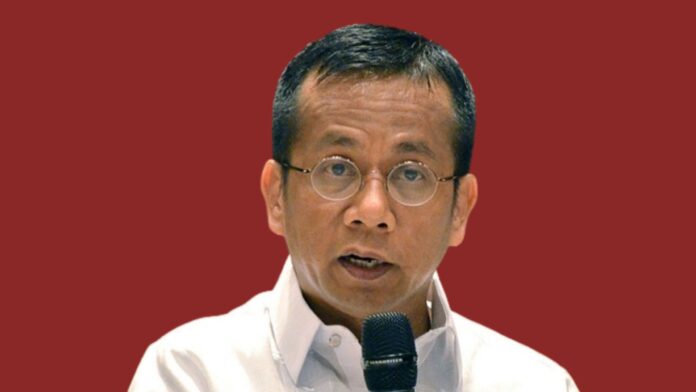The Philippines has no other option but ratify the Regional Comprehensive Economic Partnership (RCEP) agreement, with officials saying a non-ratification of the treaty would make the country the least attractive destination for foreign investors.
In a briefing, National Economic and Development Authority (NEDA) Secretary Arsenio M. Balisacan said the country’s future depends on its ability to attract investors, particularly foreigners, as domestic capital is no longer enough.
“It [RCEP] must be ratified. We need a lot of investments,” Balisacan told reporters on Tuesday, Feb. 21. “There’s only so much that you can generate locally, internally.”
Balisacan said the Philippines will be left out should Congress fail to ratify the RCEP, a free trade agreement among Asia-Pacific nations.
“As I said, we have incurred so much debt during the pandemic. We have very little fiscal space,” the NEDA chief reiterated.
“The only way we can grow and maintain our growth at the rate we experienced last year is to get investments, players that can put build infrastructure for us, build plants and equipment for us, so that jobs can be created,” he added.
Balisacan also said the Philippines is not the only country to jostle for a share of foreign investments: “Our neighbors, Indonesia, Vietnam, Thailand, they’re all aggressively looking for the same investors.”
“If you don’t shape up, keep our investment climate, keep our rules of the game clear so that they are attracted to come in, then they will simply go to these other countries and you will be left out,” he said.
“And as an economist, without those investments, without massive investments, you can’t expect to generate high quality jobs. That’s plain and simple,” he added.
The previous Monday, Balisacan said RCEP would further enhance the country’s market access, and this is why the NEDA remains steadfast in its support toward the prompt ratification of the agreement.
Balisacan explained that several consultations with concerned stakeholders and studies on the subject affirmed that joining RCEP would unlikely lead to a surge in agricultural imports.
“The very low productivity of agriculture has nothing to do with RCEP. In fact, my view is that by adopting RCEP, that will be even more forced to pay attention to agriculture because only then can you fully maximize the benefits the RCEP,” Balisacan said.
“The current problem of agriculture has nothing to do with RCEP. These problems are the outcome of past neglects of the sector. We didn’t nurture the sector for so many decades,” he said.
Based on the 2021 trade data from the International Trade Center, under the RCEP, only 15 agricultural commodity groups corresponding to 33 tariff lines will have lower tariff rates compared to some ASEAN+1 FTAs.
This is equivalent to only 1.9 percent of the total 1,718 agricultural lines and only 0.8 percent of the total agricultural imports. Of the 33 tariff lines, 17 are raw materials, 8 are intermediate products, while only 8 are final goods.
The remaining agricultural tariff lines will have equal or higher rates compared to other ASEAN+1 FTAs, or are excluded from import tariff concessions under the RCEP.
The Philippines is currently exporting a number of products for which concessions were secured, and securing better market access for these products through RCEP opens the possibility to further widen the market penetration in these countries.






